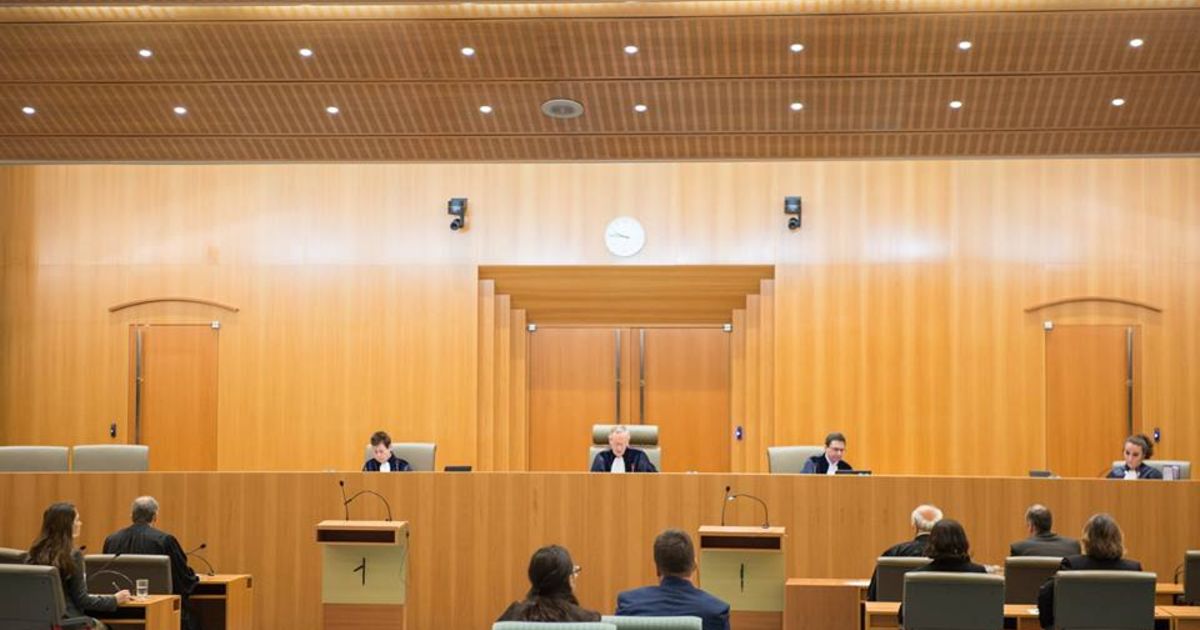
First European Citizens’ Initiative before the Court of Justice in Luxembourg
06.05.2015Yesterday, 5 May 2015 was an important day for democracy in the European Union. Three years after the first European Citizens’ Initiative was registered, another milestone was reached: the first rejected citizens’ initiative made its appearance before the Court of Justice in Luxembourg. FUEN legal advisor Frank de Boer was in the courtroom and attended the first hearing ever on an EU citizens’ initiative.
The initiative “One million signatures for a Europe of solidarity” was rejected registration one year before our Minority SafePack Initiative. It calls for introducing European rules in relation to so-called “odious debt”, i.e. illegitimate national debt incurred by a regime for purposes that do not serve the best interests of the nation and that, in their opinion, should not be enforceable by lenders who willingly entered into relations with regimes that were bribed or that bought e.g. excessive amounts of military equipment. The initiators want that this debt is put aside when countries are in “a state of necessity'', i.e. when their health and education systems, as well as their wages and pensions are collapsing.
The European Commission held that it did not have the competence from the Treaties to be able to propose a legal act. This was contested by the initiators: in their opinion the explanation in the letter from the Commission was short and inconclusive and did only state what articles did not apply, but not the reason why these articles did not apply.
Judge-rapporteur Buttigieg, who prepared the case, asked some specific questions in relation to the legal competences and provisions from the Treaties and how both parties thought these apply to the objective of this specific citizens’ initiative. Chamber President Kanninen wanted to know from the European Commission how many citizens were submitted, and how many rejected. With that last question the court concluded the hearing. The judgment will follow in a few months.
What can the Minority SafePack Initiative learn from this case? It is too early to tell, since we don’t know the judgment yet, but it will be interesting to see how the court will deal with the reasoning required in the rejection letter. Is it enough for the Commission to state that one or two articles cannot be applied? For the Minority SafePack Initiative this is even stronger since we made very concrete proposals in our annex, and the European Commission failed to address these. In terms of content the case of today is less relevant, since the Minority SafePack entails proposals in other fields of EU law, although also here it will be interesting to see in the final judgment which approach the court will take in the European Citizens’ Initiative cases.
The instrument of the European Citizens’ Initiative was introduced in April 2012. Before collecting signatures for its cause, an initiative first has to be registered by the European Commission. It soon turned out that many of the initiatives were considered by the European Commission to be outside the competences of the EU, and were rejected. Now, three years later, the statistics show that 40% of the initiatives have been rejected at the registration phase.
There have been many complaints that the Commission is taking a much too restrictive reading of its competences and that is has taken legally questionably decisions, including by FUEN, but also by law firms specialised in EU law such as Freshfields. Already seven citizens’ initiatives filed an action for annulment and challenge the decision of the European Commission about their initiative at the European Court of Justice, including our own Minority SafePack Initiative.
PRESS RELEASES
- FUEN calls for the inclusion of the Ladin language at the 2026 Winter Olympic Games
- FUEN Urges UN Special Rapporteur to Advocate for a Coherent EU Minority Protection Framework
- FUEN wishes you a peaceful Christmas season, restful days and a bright, hopeful start to the new year!
- FUEN calls on the EU to act over systematic ethnic-based land confiscations in Slovakia
- Women of Minorities conference in Budapest calls for structural change to ensure equal political participation of minority women
- FUEN President Olivia Schubert at UN Forum on Minority Issues in Geneva
- "Laboratory of Peace": 28th Seminar of Slavic Minorities held in European Capital of Culture Gorica/Gorizia
- Equality in Political Participation and Representation: Third “Women of Minorities” Conference to Be Held in Budapest
- FUEN Working Group on Education discusses challenges and future of minority schooling in Europe
- 28th Seminar of Slavic Minorities in Europe to take place in Gorica/Gorizia, Italy














